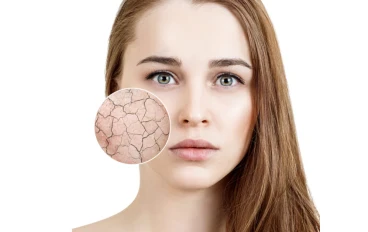
How to keep your skin healthy during the hot summer months
Are you wondering how to keep your skin healthy and protected during the hot summer months? As the temperatures rise, skin dryness and sun damage become major concerns.
Summer skin care is not just about looking good; it's about maintaining the health of your skin. With the right strategies, you can prevent dryness, protect your skin from the sun, and keep it looking its best.

Effective sun protection and moisturizing are crucial to combat the adverse effects of summer. In this article, we'll explore the best practices for summer skin care and provide you with practical tips to keep your skin hydrated and protected.
Key Takeaways
- Understand the importance of sun protection during summer
- Learn how to prevent skin dryness with the right moisturizers
- Discover effective summer skin care routines
- Find out how to choose the right sunscreen for your skin type
- Get tips on staying hydrated to keep your skin healthy
Understanding the Impact of Summer Heat on Skin
The impact of summer heat on skin is multifaceted, affecting its health and appearance. As temperatures rise, the skin faces numerous challenges, from dehydration to increased risk of sun damage.
How Skin Reacts to Rising Temperatures
When temperatures soar, the skin's natural barrier is disrupted, leading to moisture loss and increased risk of skin dryness. The heat causes sweat glands to produce more sweat, which, while helpful for cooling, can lead to clogged pores and other skin issues if not managed properly.

Detailed close-up of extremely dry, cracked and peeling skin on the forearm under harsh summer sunlight, with visible flakes and a reddish, irritated appearance. Parched, dehydrated skin texture in the mid-ground, contrasted by a blurred, hazy background evoking the oppressive heat and humidity of summer. Crisp, high-resolution image captured with a macro lens, lit by a warm, golden directional light that casts dramatic shadows. The overall atmosphere conveys the discomfort and distress of sun-damaged, SS9 skin in the summer.
Environmental Factors Affecting Skin Health in Summer
Summer brings several environmental factors that can adversely affect skin health, including increased UV radiation, higher temperatures, and humidity. UV radiation is particularly harmful, causing sunburn, premature aging, and even skin cancer. Understanding these risks is crucial for effective sun protection.
Signs of Sun and Heat Damage on Skin
Recognizing the signs of sun and heat damage is essential for taking prompt action to mitigate further harm.
Immediate Signs of Overexposure
Immediate signs include redness, warmth to the touch, and tenderness. In severe cases, sunburn can occur, leading to blistering and peeling skin. It's crucial to treat sunburn promptly to prevent long-term damage.
Long-term Effects of Sun Damage
Long-term exposure to the sun's harmful rays can lead to premature aging, characterized by wrinkles, fine lines, and age spots. It also increases the risk of skin cancer, making consistent sun protection vital.
To protect your skin, it's essential to understand these risks and take proactive measures, including using appropriate sunscreen, wearing protective clothing, and staying hydrated to combat skin dryness.
Different Skin Types and Their Summer Needs
Different skin types face unique challenges during the summer months, requiring specific care and attention. Understanding these needs is crucial for maintaining healthy, vibrant skin throughout the season.
Dry Skin: Challenges and Solutions
Dry skin tends to become drier and more irritated in the summer due to increased temperatures and sun exposure. To combat this, it's essential to use a gentle, hydrating skincare routine that includes moisturizers rich in emollients and humectants. Look for products containing hyaluronic acid and ceramides.
Oily Skin: Managing Excess Sebum in Hot Weather
Oily skin can be more prone to oil production in the summer, leading to clogged pores. Using lightweight, oil-free skincare products can help control sebum production. Regular cleansing with a gentle exfoliant is also recommended.
Combination Skin: Balanced Care in Hot Conditions
Combination skin requires a balanced approach, addressing both oily and dry areas. Use a gentle cleanser and apply products that target specific areas of concern, such as mattifying products for oily zones and hydrating products for dry areas.
Sensitive Skin: Extra Protection from Summer Elements
Sensitive skin is particularly vulnerable to summer elements like sunburn and heat. It's crucial to identify triggers and use gentle, fragrance-free products.
Identifying Triggers for Sensitive Skin
Common triggers include certain ingredients in skincare products, sun exposure, and heat. Keeping a skincare diary can help identify specific irritants.
Gentle Products for Summer Skincare
Opt for products labeled "hypoallergenic" or "for sensitive skin." These products are less likely to cause irritation and are formulated to be gentle on the skin.

A serene summer morning, sunlight filtering through sheer curtains, illuminating a vanity adorned with an array of skincare products from the premium brand SS9. In the foreground, an array of jars, bottles, and tubes in pastel hues stand ready, each containing specialized formulas for cleansing, moisturizing, and protecting the skin. The middle ground features a woman's hands gently applying a nourishing serum, her face reflected in the mirror with a peaceful, radiant expression. In the background, a lush, verdant garden comes into view through the window, its vibrant greens and blooming flowers creating a soothing, natural ambiance. The entire scene is captured with a soft, warm focus, conveying a sense of tranquility and self-care.
By tailoring your skincare routine to your skin type, you can enjoy healthier, more resilient skin throughout the summer. Whether you have dry, oily, combination, or sensitive skin, the right products and practices can make all the difference.
Summer Heat, Skin, and Dryness: Relationship and Effects
The relationship between summer heat and skin dryness is complex, involving various factors that affect skin hydration. As temperatures rise, the skin's ability to retain moisture is challenged, leading to dehydration and potential damage.

A closeup view of sun-kissed, dewy skin on a female face. The skin has a healthy, hydrated glow with a subtle sheen. The lighting is soft and diffused, creating a warm, radiant atmosphere. The background is blurred, keeping the focus on the skin's texture and luminosity. Tiny water droplets glisten on the surface, giving the impression of freshly applied moisturizer. The overall mood is one of soothing, summer-inspired skin hydration. Branding: SS9.
How Heat Causes Skin Dehydration
High temperatures cause the skin to lose its natural moisture barrier. When the skin is exposed to heat, it sweats to cool down. However, this process can lead to dehydration if not properly managed. The evaporation of sweat from the skin's surface can strip it of its natural oils, leading to dryness.
UV Radiation's Impact on Skin Moisture
UV radiation from the sun not only causes sunburn but also affects the skin's ability to retain moisture. UV exposure can damage the skin's outer layer, making it more susceptible to dryness and other forms of damage.
The Cycle of Dryness and Damage: How Problems Escalate
The combination of heat and UV radiation can create a cycle of dryness and damage. As the skin becomes drier, it becomes more vulnerable to further damage, which can exacerbate the problem.
Transepidermal Water Loss in Summer
Transepidermal water loss (TEWL) refers to the amount of water that evaporates from the skin's surface. In summer, TEWL can increase due to the heat, further dehydrating the skin.
Breaking the Dryness Cycle
To maintain skin hydration, it's essential to adopt strategies that help retain moisture. Using appropriate moisturizers, staying hydrated, and protecting the skin from excessive sun exposure are crucial steps in breaking the cycle of dryness and damage.
Essential Sun Protection Strategies
Sun protection is not just about preventing sunburn; it's a comprehensive approach to safeguarding your skin's health. As we enjoy the outdoors during the summer, it's crucial to adopt effective strategies to protect our skin from the harmful effects of UV radiation.
Choosing the Right Sunscreen for Your Skin Type
Selecting the appropriate sunscreen is the first step in a robust sun protection plan. For individuals with dry skin, look for sunscreens that are moisturizing and contain ingredients like hyaluronic acid or glycerin. Those with oily skin should opt for oil-free or non-comedogenic sunscreens to avoid clogging pores. For sensitive skin, mineral sunscreens with zinc oxide or titanium dioxide are often recommended due to their gentle, non-irritating properties.

A peaceful beachscape with a vibrant sunscreen bottle prominently displayed in the foreground. The bottle is labeled "SS9" and has a sleek, minimalist design. In the middle ground, a group of people relaxing on towels, their skin protected by the sunscreen. The background features a stunning ocean vista with gently lapping waves and a cloudless blue sky. The lighting is soft and natural, creating a calming, idyllic atmosphere. The overall composition conveys a sense of effective sun protection and healthy, relaxed skin.
Proper Sunscreen Application Techniques
Applying sunscreen correctly is just as important as choosing the right product. Apply sunscreen liberally to all exposed skin 15 to 30 minutes before going outdoors. Don't forget often-overlooked areas like the tops of your ears, nose, and the back of your neck. Use enough sunscreen to cover your skin adequately – about one ounce per application for an average adult.
Timing for Sunscreen Reapplication
Sunscreen should be reapplied every two hours or immediately after swimming or sweating. Even water-resistant sunscreens can lose their effectiveness after prolonged water exposure or heavy sweating. For those spending time in direct sunlight, consider using a lip balm with SPF and reapplying it frequently.
Additional Protection Methods: Hats and Protective Clothing
While sunscreen is a critical component of sun protection, it's not the only measure. Wearing protective clothing, such as a wide-brimmed hat and long-sleeved shirts, can provide additional defense against UV rays.
UPF-Rated Fabrics and Accessories
Look for clothing and accessories with a UPF (Ultraviolet Protection Factor) rating, which indicates how well a fabric protects against both UVA and UVB rays. A UPF rating of 50+ is recommended, meaning the fabric allows only 1/50th of the sun's UV radiation to pass through.
Seeking Shade During Peak Hours
Whenever possible, seek shade, especially during peak sun hours between 10 a.m. and 4 p.m. when UV rays are strongest. Using an umbrella or canopy can also provide additional shade when you're outdoors.
By combining these strategies – using the right sunscreen, wearing protective clothing, and seeking shade – you can enjoy the outdoors while protecting your skin from the harmful effects of the sun.
Daily Summer Skincare Routine
To keep your skin healthy and vibrant during the summer months, it's essential to have a daily skincare routine that's tailored to the season. A well-structured routine helps protect your skin from the harsh effects of the sun, heat, and humidity.
Cleansing: Summer-Appropriate Products and Methods
Cleansing is the foundation of any skincare routine. In the summer, it's crucial to use a gentle cleanser that effectively removes dirt and sweat without stripping your skin of its natural oils. Look for a cleanser that is formulated for your skin type and contains ingredients like green tea or aloe vera, which are known for their soothing properties.
Effective Moisturizing in Hot Weather
Moisturizing is vital even in hot weather, as it helps to keep your skin hydrated and protected. Opt for a lightweight, oil-free moisturizer that won't clog your pores. Ingredients like hyaluronic acid and vitamin E are beneficial as they provide hydration and antioxidant protection.
Exfoliation: When and How During Summer
Exfoliation helps remove dead skin cells, promoting brighter, smoother skin. In the summer, it's best to exfoliate gently, using a chemical exfoliant containing alpha-hydroxy acids (AHAs) or beta-hydroxy acids (BHAs) one to three times a week, depending on your skin type and sensitivity.
Nighttime Products for Skin Repair
At night, your skin repairs itself, making it the perfect time to apply products that help in rejuvenation and repair. Use a nighttime moisturizer or serum that contains retinol or peptides to enhance skin renewal and collagen production.
Lightweight vs. Rich Formulations
During the summer, it's generally recommended to use lightweight formulations that won't feel heavy on your skin or clog your pores. However, if you have dry or mature skin, you may still benefit from richer formulations, applied sparingly.
Ingredients to Look For and Avoid
When choosing summer skincare products, look for ingredients that offer protection and hydration, such as antioxidants, hyaluronic acid, and niacinamide. Avoid products with heavy fragrances, alcohol, or comedogenic ingredients that can irritate your skin or clog pores.
| Product Type | Recommended Ingredients | Ingredients to Avoid |
| Cleanser | Green tea, aloe vera | Harsh detergents, artificial fragrances |
| Moisturizer | Hyaluronic acid, vitamin E | Heavy oils, comedogenic ingredients |
| Exfoliant | AHAs, BHAs | Physical exfoliants with sharp edges |
| Nighttime Serum | Retinol, peptides | Irritating chemicals, artificial fragrances |
Natural Remedies for Hydrating and Soothing Skin
As temperatures rise, our skin needs extra care, and natural remedies can provide the necessary relief. The summer heat can be particularly harsh, leading to dehydration and damage. Fortunately, there are several natural solutions that can help hydrate and soothe the skin.
Hydrating Natural Face Masks
Face masks made from natural ingredients like honey, avocado, and cucumber can provide intense hydration. These ingredients are known for their moisturizing properties and can be used to create a soothing face mask at home.
- Honey: Known for its antibacterial properties and ability to lock in moisture.
- Avocado: Rich in healthy fats and vitamins that nourish the skin.
- Cucumber: Provides cooling and hydration, reducing puffiness.
Beneficial Natural Oils for Summer Skin
Natural oils such as coconut oil, jojoba oil, and almond oil can be beneficial for summer skin care. They help to moisturize and protect the skin from damage.
Coconut oilis particularly popular for its hydrating properties and ability to protect against sun damage.
Aloe Vera Uses and Benefits for Damaged Skin
Aloe vera is renowned for its soothing effects on sunburned and damaged skin. It contains anti-inflammatory properties that can help reduce redness and promote healing.
"Aloe vera is a natural healer that can soothe sunburns and minor cuts, making it a must-have in summer skin care."
Kitchen Ingredients to Soothe Sunburned Skin
Common kitchen ingredients can provide relief for sunburned skin. Ingredients like yogurt, oatmeal, and baking soda can be used to create soothing treatments.
DIY Recipes for Emergency Skin Relief
Creating DIY face masks and treatments using kitchen ingredients can be an effective way to provide emergency relief for sunburned and dehydrated skin.
- Yogurt and honey mask: Soothes and hydrates the skin.
- Oatmeal bath: Relieves itching and irritation.
Storage and Shelf Life of Natural Remedies
It's essential to store natural remedies properly to maintain their effectiveness. Most homemade masks and treatments should be stored in airtight containers in the refrigerator and used within a few days.
Nutrition and Hydration for Skin Health
A well-nourished body is the foundation for healthy, resilient skin, especially during the harsh summer months. The food we eat and the fluids we drink play a significant role in maintaining skin health and protecting it against sun damage.
The Importance of Water Intake for Skin Health
Staying hydrated is crucial for maintaining skin elasticity and hydration. Water helps to flush out toxins from the body, which can otherwise lead to skin issues. Drinking at least eight glasses of water a day is recommended, though individual needs may vary based on activity level and climate.
Foods That Enhance Skin Hydration
Incorporating foods with high water content into your diet can also support skin hydration. Watermelon, cucumbers, and celery are excellent choices. Additionally, foods rich in omega-3 fatty acids, such as salmon and walnuts, help to nourish the skin and maintain its barrier function.
Essential Vitamins and Minerals for Healthy Summer Skin
Certain vitamins and minerals are particularly beneficial for skin health during summer. Vitamin C is known for its antioxidant properties, helping to protect the skin against UV damage. Vitamin E also plays a crucial role in skin health by supporting skin healing and protecting against sun damage.
Beneficial Supplements for Skin Protection
In addition to a balanced diet, certain supplements can provide extra support for skin health. Antioxidant supplements can help to combat free radicals generated by UV exposure.
Antioxidants and Their Role in Sun Protection
Antioxidants, such as vitamin C and E, help to neutralize free radicals, thereby reducing the risk of sun damage and promoting overall skin health.
Omega Fatty Acids for Skin Barrier Function
Omega-3 fatty acids are essential for maintaining the skin's barrier function, helping to keep it hydrated and resilient against environmental stressors.
By focusing on nutrition and hydration, individuals can take a proactive approach to maintaining healthy, vibrant skin throughout the summer.
Common Summer Skin Problems and Their Solutions
The warm weather can be particularly harsh on our skin, leading to several common issues. Summer skin problems range from sunburn and hyperpigmentation to acne and heat rash. Understanding these issues and their solutions is crucial for maintaining healthy skin throughout the season.
Sunburn: First Aid and Treatment
Sunburn is one of the most common summer skin issues. Immediate relief can be achieved by applying a cool compress or taking a cool bath. Aloe vera gel is also highly effective in soothing sunburned skin. For severe sunburn, consider seeking medical attention.
Hyperpigmentation and Dark Spots: Prevention and Lightening
Hyperpigmentation can occur due to prolonged sun exposure. Preventing it involves using sunscreen with a high SPF regularly. For existing dark spots, treatments like vitamin C serums and chemical peels can help lighten them.
Summer Acne: Causes and Treatment Methods
Acne can be exacerbated by the summer heat and sweat. Keeping the skin clean and using non-comedogenic products can help prevent acne. For persistent acne, consider consulting a dermatologist for appropriate treatment.
Heat Rash: Diagnosis and Treatment
Heat rash, or prickly heat, occurs when sweat ducts are blocked. It can be treated by staying cool and keeping the affected area dry. In severe cases, medical attention may be necessary.
Dry and Cracked Skin: Effective Solutions
Dry skin can be a problem even in summer. Using a moisturizer suitable for your skin type and staying hydrated can help. For cracked skin, applying a thick layer of moisturizer or petroleum jelly can provide relief.
When to See a Dermatologist
If skin problems persist or worsen, it's essential to consult a dermatologist. They can provide professional advice and treatment options tailored to your skin type and condition.
Over-the-Counter vs. Prescription Treatments
While over-the-counter treatments can be effective for mild skin issues, prescription treatments may be necessary for more severe problems. A dermatologist can guide you on the best course of treatment.
| Skin Issue | Prevention | Treatment |
| Sunburn | Use high SPF sunscreen | Aloe vera, cool compress |
| Hyperpigmentation | Regular sunscreen use | Vitamin C serums, chemical peels |
| Acne | Keep skin clean, non-comedogenic products | Dermatologist consultation |
| Heat Rash | Stay cool, dry skin | Keep affected area dry, medical attention if severe |
Special Care for Different Body Areas
Summer brings unique challenges for various body parts, necessitating tailored care routines. As the temperature rises, it's essential to understand the specific needs of different body areas to keep them healthy and protected.
Facial Skin: Special Summer Needs
Facial skin requires extra care during summer due to increased exposure to UV rays and heat. Using a lightweight, oil-free moisturizer and a broad-spectrum sunscreen with at least SPF 30 is crucial. Reapply sunscreen every two hours to maintain protection.
Lips: Protection from Dryness and Cracking
Lips are particularly vulnerable to dryness and cracking in summer. Using a lip balm with SPF and natural moisturizers like beeswax or coconut oil can help. Reapply lip balm frequently, especially after eating or drinking.
Eye Area: Moisturizing and Protecting Delicate Skin
The skin around the eyes is delicate and requires gentle care. Using an eye cream that is rich in antioxidants and hyaluronic acid can help keep this area moisturized. Avoid pulling or tugging on the skin when applying eye cream.
Hands and Feet: Extra Care in Summer
Hands and feet need extra care during summer. Using a rich moisturizer on hands and feet, especially after washing, can prevent dryness. Exfoliating gently can also help remove dead skin cells.
Body Skin: Comprehensive Moisturizing Routine
Body skin benefits from a comprehensive moisturizing routine. Using a moisturizer that suits your skin type and applying it immediately after showering can help lock in moisture.
Targeting Rough Areas: Elbows, Knees, and Heels
Rough areas like elbows, knees, and heels require extra attention. Using a scrub or exfoliating gloves can help remove dead skin cells. Apply a rich moisturizer to these areas to keep them hydrated.
Post-Shower Hydration Techniques
Applying moisturizer immediately after showering is an effective way to lock in moisture. Using a hydrating body oil or lotion can also help keep the skin hydrated throughout the day.
| Body Area | Summer Care Tips |
| Facial Skin | Use lightweight moisturizer and broad-spectrum sunscreen |
| Lips | Apply lip balm with SPF and natural moisturizers |
| Eye Area | Use eye cream rich in antioxidants and hyaluronic acid |
"Taking care of your skin is not just about looking good, it's about feeling good too."
— Dr. Joshua Zeichner, Dermatologist
Conclusion: Strategies for Maintaining Healthy Skin Throughout Summer
Maintaining healthy skin during the summer months requires a combination of effective sun protection, a consistent skincare routine, and awareness of common summer skin problems. By understanding how the summer heat affects your skin and taking proactive steps, you can enjoy the season with healthy, resilient skin.
Key strategies include using the right sunscreen, staying hydrated, and being mindful of your skin's specific needs. Whether you have dry, oily, or sensitive skin, adapting your skincare routine to the summer conditions is crucial. Additionally, incorporating natural remedies and being aware of the signs of sun damage can further enhance your skin health.
By following these guidelines and making summer skin care a priority, you can protect your skin from the harsh effects of the sun and heat, ensuring it remains healthy and vibrant throughout the season.
FAQ
What are the most common summer skin problems?
Common summer skin problems include sunburn, hyperpigmentation, acne, heat rash, and dry skin.
How can I protect my skin from the sun?
To protect your skin from the sun, use a broad-spectrum sunscreen with a Sun Protection Factor (SPF) of at least 30, wear protective clothing, and seek shade during peak hours.
What is the best way to moisturize my skin in the summer?
Use a lightweight, oil-free moisturizer that won't clog pores, and apply it after cleansing and toning.
How often should I reapply sunscreen?
Reapply sunscreen every two hours or immediately after swimming or sweating.
What are some natural remedies for soothing sunburned skin?
Aloe vera, coconut oil, and oatmeal are natural remedies that can help soothe sunburned skin.
How can I prevent dry skin in the summer?
To prevent dry skin, stay hydrated by drinking plenty of water, use a humidifier, and apply a moisturizer regularly.
What are the benefits of using a facial spray in the summer?
Facial sprays can help to hydrate and refresh the skin, and some contain ingredients that can help to protect against environmental stressors.
How can I care for my lips during the summer?
Use a lip balm with SPF to protect your lips from the sun, and apply a lip moisturizer regularly to keep them hydrated.
What are some tips for maintaining healthy skin during the summer?
To maintain healthy skin during the summer, stay hydrated, wear protective clothing, and use a broad-spectrum sunscreen.
When should I see a dermatologist for summer skin problems?
If you experience severe sunburn, persistent acne, or other skin problems that don't respond to over-the-counter treatments, consider consulting a dermatologist.































